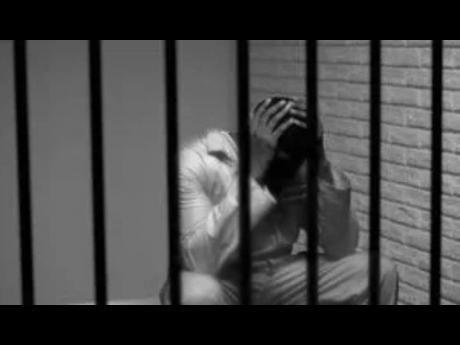Cop gets $21m for false imprisonment in filthy cell
The inhumane conditions in the island’s prisons were taken into consideration last month when Supreme Court Judge Tania Mott-Tulloch Reid ordered the State to pay $21 million in damages to Detective Constable Leonard Lindsay, who the court ruled...
The inhumane conditions in the island’s prisons were taken into consideration last month when Supreme Court Judge Tania Mott-Tulloch Reid ordered the State to pay $21 million in damages to Detective Constable Leonard Lindsay, who the court ruled was falsely arrested and maliciously prosecuted and convicted of murder.
Lindsay, who is still a serving member of the Jamaica Constabulary Force, spent three years in prison before he was freed by the Court of Appeal in November 2017.
The court ruled that he had acted in self-defence while on duty in January 2010. Hence, no criminal charges should have been filed against him.
The police officer has joined the many prisoners who have been complaining bitterly for years about their ordeals in prison, and outlined some of the dehumanising and deplorable conditions in his witness statement.
Attorneys-at-law Yushaine Morgan and Renee Freemantle, who represented Lindsay, are now advocating for improvement in the nation’s prisons.
“The fact that Mr Lindsay, a police officer, after lawfully executing his duties, was subjected to harsh, horrific and inhumane conditions in prison is a stark reminder that anyone could suffer that fate. As such, we all have a vested interest in advocating for improvement in the conditions in the nation’s prisons,” the attorneys told The Sunday Gleaner last week.
The police officer said that during his incarceration, he shared a cell with two other persons. The cell was small – about six feet wide and seven or eight feet long. He slept on a makeshift hammock while the other men slept on sponges on the floor. He said he, too, slept on sponges from time to time.
Lindsay said that when the sponges were soaked with sweat, they became infested with chinks, so they had to sleep on the floor until they were replaced. He also had trouble sleeping because of the vermin in the cell and was very stressed because of his predicament.
The cop said he was disgusted by the stench and state of the cell, which was hot and poorly ventilated.
He developed a skin fungus because of the filthy conditions.
“The cell was dirty and filthy and overrun with rats, chinks, cockroaches and other insects. The floor and walls had faecal matter and urine on them,” Lindsay said.
ARMED ROBBERS
The attorneys for the constable are pleased that he was acquitted on appeal and obtained compensation for “false imprisonment and malicious prosecution” that took into account his suffering in prison.
In the claim filed in the Supreme Court against the attorney general, Lindsay outlined that on January 1, 2010, during the course of his duties, his superior officer informed him that two men had been robbed in an area in which he and another police officer were on patrol in Manchester. They received the description of the two men who committed the robberies and were warned that they were armed and dangerous.
Two men were later seen on the beach at Alligator Pond fitting the description of the robbers, and Lindsay and his partner, Detective Constable Tyrone Findlay, approached them.
He said the men brandished a gun and a knife, and fearful for their lives, he and his partner discharged their firearms in self-defence, hitting the men. A gun was recovered and handed over to the deputy superintendent who visited the scene.
One of the men was killed and Lindsay said the man he shot was injured.
Lindsay and Findlay were arrested and charged in August 2011 with the murder of Tony Richards. They were subsequently convicted by a jury in 2014 and a judge sentenced them to 25 years’ imprisonment each at hard labour. They were ordered to serve 12 years before they could be eligible for parole.
CONSTANT FEAR FOR HIS LIFE
After spending three years and two days in prison, the Court of Appeal freed Lindsay on November 17, 2017, but he was not released until three days later.
Lindsay, who filed a lawsuit after he won his appeal, described how he was seriously affected by the extra days he spent in prison after his acquittal.
In the suit, he spoke of the deplorable and inhumane conditions in prison. The police officer said he was in constant fear for his life, especially with prisoners there who he had helped to put behind bars.
The attorney general did not file a defence to the claim and a default judgment was entered.
Attorney-at-law Robert Clarke, instructed by the director of state proceedings, represented the defendant at the assessment of damages.
The judge, in assessing damages for malicious prosecution, referred to Lindsay’s detailed description of how he felt when he was arrested in front of his colleagues and fingerprinted. The judge pointed out that Lindsay was shunned by his colleagues and some of them expressed their belief that he was guilty. He received no support from fellow officers, even though he had enjoyed a good relationship with them prior to his arrest and charge.
He said residents of Manchester made disparaging comments about him and called him a murderer.
Lindsay attended the Mandeville Parish Court on 19 occasions before the preliminary enquiry was held. He attended the Manchester Circuit Court nine times before the trial started and it took 25 days to be completed. He said when he was convicted his reputation suffered another blow.
The trial process was a “gruelling and arduous experience”, Lindsay noted, adding that he was “crushed” when the guilty verdict was handed down. He recounted feeling as if he would collapse in despair when he heard the verdict and “felt angry when I considered I was simply executing my duties”.
The horrible conditions in prison further compounded his ordeal.
In the lawsuit, the police officer shared that if he wanted to relieve himself in the night, he had “to seek the permission of his cellmates to descend from the hammock, defecate and then dispose of the faeces through a window”. If he wanted to urinate, he would “stay in the hammock, urinate in a bottle, dispose of the urine the following morning and then wash the bottle out”.
He described prison rules as very strict. The prisoners, including himself, were released from their cells at 8:30 a.m. daily. He said the bathrooms were no better than the cells, as the toilets were old and dirty, they did not have seats and were covered with urine and faeces. Lindsay recounted that he had to walk with a bucket to flush the toilet and used a crocus bag to shield himself when he defecated.
He got only one bucket of water to bathe and the meals were cold and tasteless, Lindsay added.
The police officer said they had to return to their cells at 10:30 a.m., then let out again at lunchtime when they could play basketball or football until 3 p.m. then return to their cells until 8:30 a.m. the next day.
On one occasion when Lindsay was having a shower, another inmate refused to give him his privacy and threatened to hit him. Lindsay disclosed that he was often harassed by that prisoner. Another prisoner threatened to stab Lindsay, and he said that those incidents caused him to become withdrawn.
AWARD FOR DAMAGES
In his ruling, the judge noted that it took three years from the time of Lindsay’s arrest to the date of his conviction and three years before he was acquitted by the Court of Appeal.
“I am of the view that the sum of $17 million for malicious prosecution would be reasonable in the circumstances,” Justice Tulloch-Reid ruled.
The judge also took into account Lindsay’s reputation as a police officer and the fact that he was carrying out his duties when the incident took place.
Lindsay was awarded aggravated damages because he had to share a cell with other prisoners, the length of time his acquittal took to come into effect and injury to his reputation. The judge took into consideration Lindsay’s mental distress; his concern for his family’s financial situation, as he was the main breadwinner; and the humiliation of being arrested and convicted.
The judge said it was clear that Lindsay suffered injury to feelings during his false imprisonment and that it affected his mental state.
The judge said Lindsay became sad because of his continued imprisonment for three days, despite his acquittal, which would bring him some degree of humiliation, and awarded him damages for the three days.
Lindsay was awarded special damages of $2,150,000, and $625,494.93 in damages for false imprisonment. Three per cent interest per annum was awarded on both sums from November 17, 2017 to October 13, 2022. The judge said there was no objection from the defendant to the amount pleaded and proved for special damages.
The policeman was also awarded damages for malicious prosecution in the sum of $17 million with three per cent interest from August 17, 2011 to October 13, 2022. He was awarded aggravated damages in the amount of $1,304,000.
Lindsay was awarded costs in the claim, which are to be taxed if not agreed.




